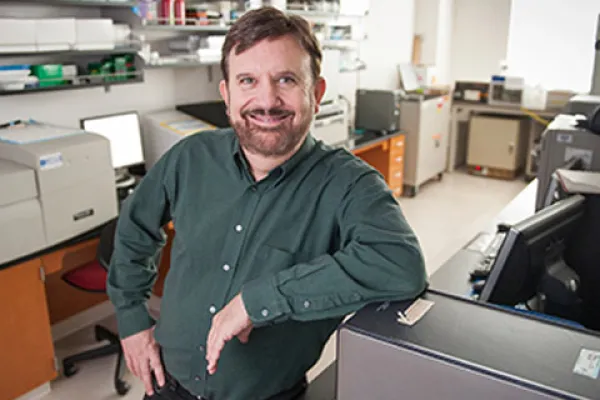Breaking the Cycle of Poverty and Illness: Engel Lecture Focuses on Neglected Tropical Diseases
Research & Inquiry

Published March 17, 2015
When Professor Steven Williams began studying neglected tropical diseases more than three decades ago, the group of illnesses “was so neglected that we didn’t even have a name for it,” he says.
The 17 diseases in that category include chronic illnesses such as elephantiasis, hookworm, leprosy and river blindness, which tend to flourish among the world’s poorest populations.
In recent years, significant progress has been made in fighting neglected tropical diseases, said Williams, Gates Professor of Biological Sciences at Smith. Yet he noted that more than 1.4 billion people worldwide remain infected with at least one such disease—or one in five people on the globe. Many are infected with more than five neglected tropical diseases at once.
The harm done goes beyond the health of individuals, said Williams, whose field research has taken him to Kenya, Egypt and Micronesia—among other places. “Neglected tropical diseases keep families in poverty, villages in poverty and whole countries in poverty,” he said. “It’s a vicious cycle.”
Williams will explore the strategies and the stakes involved in eradicating neglected tropical diseases in this year’s Katharine Asher Engel Lecture. His talk, “The Global Fight Against Neglected Tropical Diseases (NTDs): Diseases of Poverty That Afflict the Bottom Billion,” will be held Tuesday, March 24, at 5 p.m. in Weinstein Auditorium. The event is free and open to the public.
The Engel lecture is given annually by a faculty member who has made significant contributions to their field. It was established in 1958 by the National Council of Jewish Women in honor of alumna and Smith honorary degree recipient Katharine Asher Engel ’20.
Williams, whose research focuses on the microbiology of parasites that cause neglected tropical diseases, believes many such illnesses can be wiped out within the next decade.
“We are very close on dracunculiasis, better known as guinea-worm disease,” he said. “Last year, that disease was down to about 179 total cases, mostly in South Sudan.”
Cases of lymphatic filariasis—better known as elephantiasis—which causes massive swelling of the limbs and other body parts, have also dropped, from 120 million to about 40 million worldwide over the past decade, Williams said.
What will it take to see neglected tropical diseases go the way of smallpox, which the World Health Organization says is the only human disease that has been eradicated?
“Real progress is being made,” Williams said, citing the efforts of organizations such as the Bill and Melinda Gates Foundation in supporting prevention and research. In addition, pharmaceutical companies such as Merck and GlaxoSmithKline are now donating drugs needed to treat neglected tropical diseases.
Yet Williams noted that those illnesses are still neglected when it comes to public attention.
“Diseases like SARS and West Nile virus get media coverage far out of proportion to the dangers they pose,” he said. “When you consider that one in five people on the globe has a neglected tropical disease, it’s time for the world to be paying more attention.”
Williams, who is in his 33rd year of teaching at Smith, has served on steering committees and advisory boards for the World Health Organization and the Edna McConnell Clark Foundation’s work on tropical diseases. He is founder and director of the New England BioLabs Molecular Biology Summer Workshops, the largest and longest running course in molecular biology for professionals.
Williams also directs the National Institute for Allergy and Infectious Disease/National Institutes of Health Molecular Biology Filarial Research Reagent Repository at Smith. The repository develops and supplies molecular reagents to filariasis researchers around the world.
Molecular biologist Steven Williams, Gates Professor of Biological Sciences, will give the annual Engel Lecture March 24.